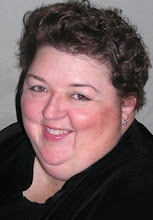
Last week I showed two of my classes a delightful film called The American Ruling Class, which bills itself as a "documentary, drama, musical." It lives up to the billing.
The drama part is the storyline of two recent Yale graduates who are trying to figure out what to do with their lives now that they are ready for the "real world." Other fictional parts include classmates, workers, a Pentagon press corps, and musical entertainers, including some wonderful kids.
The documentary part involves the film's creator, Lewis Lampham, long-time editor of Harper's Magaine and self-identified member of America's Ruling Class. Lampham coaches the fictional Yalees by introducing them to a wide range of real life members of various sectors of media, literary, Hollywood and political elites. There is little indication of how many of these well-known persons are "in" on the fictional aspects. In this way, the film reminds me of Sacha Baron Cohen's work where the lines between fiction and reality are blurred. Highlights include Walter Kronkite, Kurt Vonnegut, Barbara Ehrenreich, James Baker, Hodding Carter, and Bill Bradley.
The musical part involves several times in the film when the point is driven by workers, press corps and kids breaking out in song. Of course, there is also a magical bus ride with Howard Zinn, who conducts a tour of an alternative American history that sought to set up a ruling class and suppress dissent, accompanied by a Phillip Glass composition from Koyaanisqatsi. And rounding out the musical aspects of the film, is a wonderful encounter with Pete Seeger, who is strumming a banjo on a country road and providing sage wisdom about social change.
If you are looking for cut and dry answers to the questions of whether the ruling class controls the rest of us, whether holding power means the opportunity to do great good or whether power corrupts absolutely, you will be dissatisfied with this film. It is highly ambiguous, reflecting, I believe Lampham's own mixed feelings about the privileges that he has enjoyed.
One of the more interesting aspects of the film is the obvious role that two prominent private organizations play in providing a gateway to becoming a part of the class: the Council on Foreign Relations and the Trilateral Commission.
One of the graduates is introduced to the Council on Foreign Relations as the doorway he must pass through in order to become part of The American Ruling Class. The other graduate, a little more reluctant to become a member, is sent to a wide range of political, military and philanthropic leaders, each of whom is a member of one or both of these organizations.
When I teach about C. Wright Mills's Power Elite, I point out that one of the features of an elite is that they are simply acting within their social circles, no evil cartel needed. Because these powerful persons share social spaces, they often make decisions like most of us, thinking of their own interests and those of their social circles, acting along the norms that they have been taught and viewing the world in ways they have been socialized. The difference is that when these elites act, other people's lives outside their circles are affected. The effects can be unintentional, but they are real, nonetheless.
Only after watching this film did I learn more about the Council on Foreign Relations and the Trilateral Commission. I was amazed. These organizations are the centers of power on both sides of the political spectrum. These are where the elite meet and do business. These are where power is brokered, expanded and solidified.
When I teach about Mills's point that no evil cartel is necessary, I also point out that doesn't rule out conspiracies. Conspiracies are not necessary, but they certainly are more efficient. After learning more about these two organizations, I am now worried that I was more right about this than I want to be.
Add to this, another aspect of world elitism of which I've only recently become aware, the annual Davos meeting of the World Economic Forum. While the news media loves to show G-fill-in-the-number-this-year summits of political leaders and financial advisors supposedly setting trade policy, little media coverage is given to Davos outside of business news. Yet this is where elites from around the world meet to set policy not only for governments, but for developing countries, social agendas, multi-national corporations, academic grants and media production.

If you are concerned about the fact that 1% of the world's population now owns over 40% of the world's wealth, then these three organizations should be on your radar. If you are concerned about the growing poverty the world is experiencing the wake of the events of 2008 and the so-called financial meltdown, these three organizations should be on your radar. If you want to understand why political power is much more complex than the news channels want you to believe (like much more complex that what the current president is doing today and how are the two-sides of one coin political parties are dividing their time), then these three organizations should be on your radar.
This is the power elite and as predicted they are getting more powerful in many ways.
I have a lot more to say about power and I do not believe the power elite is the only power game. But I do think it is important to know about this if you want to give the correct context to media. Because, currently in the United States, the media are acting as smoke and mirrors.
Toto is looking behind the curtain. We should probably follow suit if we want to find our way to our brains, our hearts, our courage and our homes.

No comments:
Post a Comment